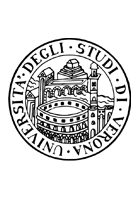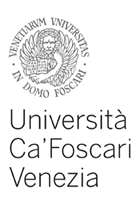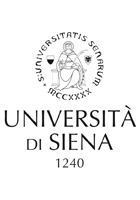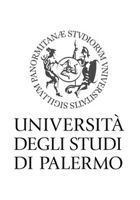Spelling of Medieval latin texts
ALIM provides the texts as they appear in the editions used as ‘source’ for the electronic text, fully respecting the spelling choices made by the editors. Consequently, the same words may appear written in different forms in different texts, but also within the same text. This is the result of the merging between the modern editorial habits and the medieval spelling system, which was not standardised – similarly to ‘classical’ Latin – in exemplary, immutable, and easily reproducible, forms. On the contrary, it shows a more or less wide variability, according to the periods, the environments, and the cultural level of the scribes. In fact, all spelling variants are possible and their conservation in the edited text is respectful of the historical, cultural and stylistic value that – sometimes – the variant itself may assume.
The search tools of this Archive do not allow to retrieve the variants of a lemma automatically. For this reason, it has been deemed necessary to point out some fundamental rules of spelling modification according to the period in which the texts were produced. All the texts belong to an epoch in which, after the spelling restauration promoted by Charlemagne, the variants are limited in frequency and are generally repetitive, as they were either no longer or minimally subordinate to the influence of spoken language.
The few cases below show the spelling variants that are most frequently to be found in the texts contained in the Archive.
The symbol > means ‘becomes’ / ‘has become’.
- Alterations of vocalic spelling
à and a usually remain unchanged.
i>e, e>i (e.g. quatenus>quatinus; nomine>nomene);
u>o, o>u (e.g. mundum>mondum; consules>consoles; diabolus>diabulus);
y>i, i>y (e.g. lympha>limpha; sidera>sydera; idoneus>ydoneus).
The diphthongs ae, oe are almost everywhere expressed with a simple e. In few cases, the diphthong is written as ę. During the period when the diphthong ae was used – between the 9th and the 11th centuries – the uncertainty of its employment gave rise to hypercorrect spellings, such as praecipuae, or aecclesia (similar examples can also be found in the following centuries). In some modern editions (mostly of philosophical texts) diphthongs are arbitrarily restored.
The diphthong au is sometimes reduced to a in augustus>agustus; more frequently in auctor>actor.
- Alterations of consonant spelling
d>t and t>d mostly in final position (e.g. at>ad; ad>at; inquit>inquid; caput>capud);
p>b and b>p (e.g. obtulit>optulit; optimates>obtimates);
m>n (e.g. membrum>menbrum);
r>l (e.g. pruritu>pluritu);
ph>f, f>ph (e.g. philosophia>filosophia; horphanos>horfanos; profanus>prophanus);
j>g (e.g. majestas>magestas);
x>s, ss, xs (e.g. iuxta>iusta; exercitus>esercitus, essercitus, exsercitus; exemplum>esemplum, essemplum, exsemplum);
ca>ka (e.g. caritas>karitas; capaciter>kapaciter);
ci>ti, ti>ci (e.g. etiam>eciam, pretium>precium; delicie>delitie; Grecia>Gretia; facio>fatio);
ct>-tt, –tt>ct (e.g. amictus>amittus; mitto>micto);
qu>c, c>qu (e.g. antiquum>anticum; locutus>loqutus). Not necessarily does a double vowel follow q: e.g. equum>equm;
nct>nt (e.g. sanctus>santus);
mn>mpn: the tendency to assimilate the group mn leads to the insertion of an epenthetic p, in order to keep a distinction in the pronunciation of m and n. This gives rise to spelling mpn, which is almost constantly present in words such as dampnare, condempnatio, columpna;
ps>s (e.g. psalmus>salmus);
sc>s, s>sc: more frequent among scribes from northern Italy (Ex.: scio>sio; consilium>conscilium);
The simplification of geminate consonants and, as a reaction to this, the presence of fake doublings are well attested, in particular with liquid sounds, and in texts from northern Italy (e.g. elegantia>ellegantia; immo>imo).
- Use of h
According to medieval grammar, h was not considered a letter of the alphabet, but rather a ‘nota aspirationis’ (‘aspiration note’). Its omission, even though it was considered a fault, did not alter the meaning of the word. Mostly at the beginning of a word, h quite often disappears (e.g. hortus>ortus; habentem>abentem; exhortatio>exortatio). However, as a reaction, h was introduced in words that should not require it (e.g. ostium>hostium; inertia>hinertia; superabundare>superhabundare; onus>honus). H is often omitted in the clusters ch, th, and, less frequently, ph (e.g. charta>carta; thesaurus>thesaurus; sphaera>spera), or added as hypercorrectivism (e.g. caritas>charitas; Cato>Chato; Telephus>Thelephus).
- Michil, nichil
Nearly generalised and acknowledged as regular are the spellings michil, nichil, which replace mihil and nihil.
- Special features
Specific problems derive from the reduction to one single word of forms that are ‘usually’ divided into two separate parts, such as isto modo>istomodo.
On the other hand, forms that are ‘usually’ considered as one single word often appear as two distinct units. E.g. cuiuslibet>cuius libet.
Finally, some cases of metathesis should be pointed out: e.g. stuprum>strupum; fulmina>flumina.








